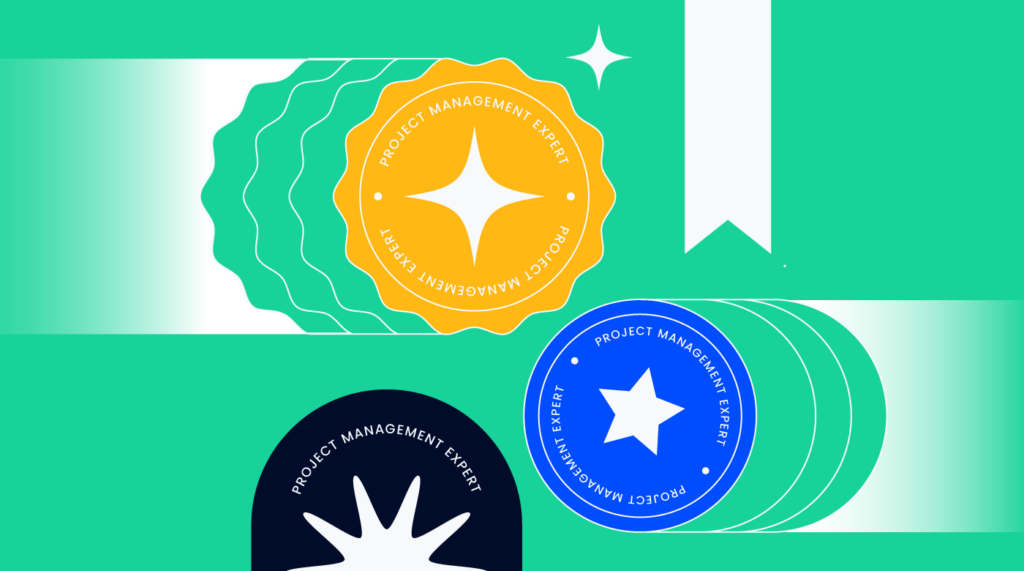Perhaps controversially for the digital project management community, I’d argue that yes, project management certifications are worth it in 2024.
It looks good on your resume, it can help you earn more money, and most certifications are pretty hands-on, giving you practical skills and techniques you can apply to your day-to-day job right away.
9 Best Project Management Certifications
I'm going to cover the details on some of the best programs currently available and explain how to get each project management certification.
- The DPM School
- Project Management Professional (PMP)
- Certified Associate in Project Management (CAPM)
- CompTIA Project+ Project Management Certification
- PRINCE2 Foundation & PRINCE2 Practitioner Project Management Certification
- Associate in Project Management (APM)
- Certified Project Director (CPD)
- Certified ScrumMaster (CSM)
- Professional Scrum Master I, II, & III
We summarize these programs in the table below, and you can read a more detailed description of each credential in the following sections.
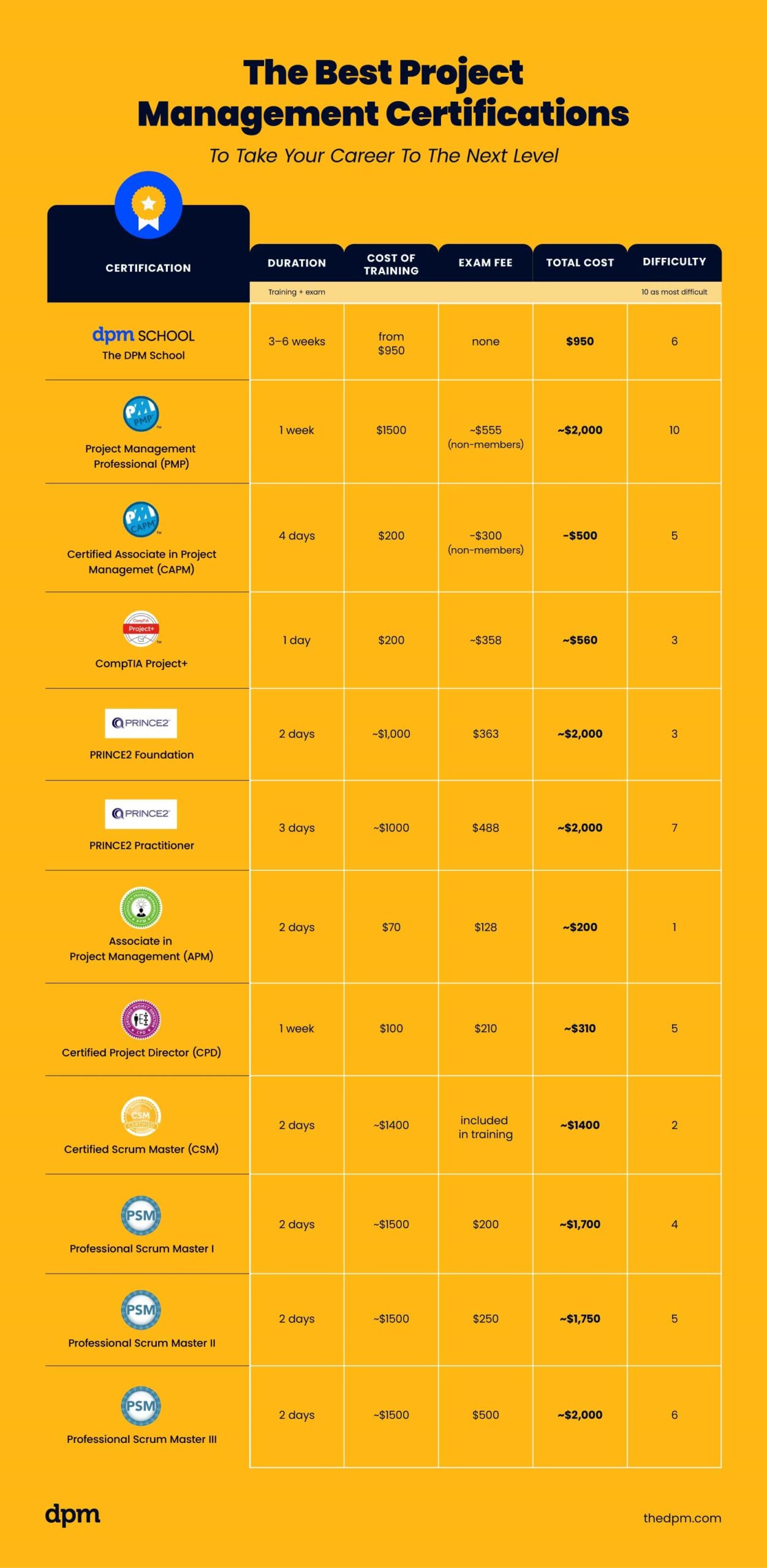
1. The DPM School
The Digital Project Manager offers an online digital project management course that provides project management training to people leading teams and managing projects, processes, and pixels in a digital world.
Taught by expert project managers, the course provides a deep understanding of how to deliver complex digital projects successfully and consistently.
Our course takes you through the entire project life cycle in a digital context, and you'll learn about how methodologies like waterfall, Scrum agile, and Kanban can be tailored and applied effectively in a digital space.
You’ll learn to hone the judgment, instinct, and leadership skills you need to succeed in a fast-paced digital world, as well as practical skills in areas like handling evolving requirements, managing communications and stakeholders, and assessing progress.
The DPM is now a PMI Authorized Training Partner, and the course is eligible for 12 pre-approved PDUs across all sides of the talent triangle.
Available on demand, our online course is designed for a wide array of persons tasked with project management responsibilities, from newbies to professional project managers.
Here’s what one student had to say:
The tutorials are jam packed with information, the webinars back up the theory with experiences from people who work in the industry, and discussion on the slack channel was really valuable. Not only did I learn a huge amount from the course but it’s also given me the confidence I need to work as a DPM. I’d recommend this course to anyone wanting to work in the industry.
How to get DPM School certified:
Requirements:
- Complete all 27 multimodal lessons by watching, reading, or listening at your own pace
- Successfully complete 7 scenario-based quizzes with a score of 80% or higher
- Complete the hands-on final assignment and score 60% or higher
Price:
- The course costs $950 for 12 months of access
- Alternatively, you can get the course free with DPM Membership ($399 / year)
2. Project Management Professional (PMP)
The Project Management Professional certification (PMP) is a PMI certification that is arguably the most respected international certification in project management, with more than 750,000 project managers currently PMP certified.
The PMP is an all-encompassing test of the Project Management Institute’s Project Management Book Of Knowledge (PMBOK, currently in its 7th edition) and your ability in the management of the three project constraints; time, cost, and scope.
The certification is aimed at imparting comprehensive knowledge on how to adequately handle the project life cycle through project planning, scheduling, controlling, monitoring, and closing out the project.
Of all the project management certifications we’ve looked at, it’s certainly the hardest certifications to get—the prerequisite experience is laudable (but extensive), the application process is onerous, and the training and exam aren’t a cakewalk either.
How to get PMP certified:
Requirements:
- Four-year degree and 36 months of project experience within the past 8 years, and 35 hours of project management education OR a High School diploma with 60 months of experience within the past 8 years, and 35 of project management training
- Pass the PMP exam: the certification exam has 200 multiple-choice questions, and you have four hours to complete it.
- To maintain your PMP certified status, you must earn 60 professional development units (PDUs) every three years.
Price:
- The PMP project management certification cost totals about $2000:
- ~$1500 for a PMP project management course to prepare for the exams
- $405-$555 for the exam. Members pay $405, non-members pay $555
3. Certified Associate in Project Management (CAPM)
If you haven’t been a project manager for long enough to apply for your PMP, it’s worth considering the PMI’s stepping stone project management certification—the Certified Associate in Project Management.
The CAPM is PMI’s entry level project management certification; just 23 hours of training are needed. It's intended to demonstrate candidate's understanding of the fundamental knowledge, terminology, and processes of effective project management.
How to get CAPM certified:
Requirements:
- High school diploma, an associate’s degree or equivalent secondary degree
- 23 hours of project management classes
- Pass the CAPM exam–the certification exam has 150 multiple-choice questions, and you have three hours to complete it
- To maintain your CAPM, you must earn 15 PDUs every 3 years
Price:
- CAPM project management certification costs a total of $500:
- $200 for a CAPM project management course to prepare for the exam
- $225 (for PMI members) or $300 (for non-members) for the exam
4. CompTIA Project+ Certification
The CompTIA Project+ certification is an entry level certification set at virtually the same level as the CAPM certification, although arguably, it’s not as tough, with a shorter exam! That makes this a good project management certification for beginners.
Unlike the CAPM certification, which has to be regularly renewed, an advantage of the CompTIA Project+ certification is that it is considered good for life and does not need to be renewed.
How to get CompTIA Project+ certified:
Requirements:
- One year of project management experience is recommended
- Pass the CompTIA Project+ exam–the certification exam has 95 multiple-choice questions, and you have 90 minutes to complete it
Price:
- The CompTIA Project+ project management certification costs a total of ~$560:
- $200 for a CompTIA Project+ project management course to prepare for the exams
- $358 for the exam (can be taken at Pearson VUE test centers in North America)
5. PRINCE2 Foundation & PRINCE2 Practitioner
Projects in Controlled Environments (PRINCE2) is a project management method originally from the UK that guides you through the essentials for managing successful projects.
PRINCE2 can be tailored to meet your specific requirements and they even offer an agile variant in PRINCE2 Agile. The course focuses on project direction, management, and delivery across the pre-project, initiation, delivery, and final delivery phases of a project.
The PRINCE2 Foundation certification is the entry-level version that tests basic knowledge of the field, while the PRINCE2 Practitioner tests the more advanced knowledge of managers who already have the foundation certification.
Typically, you can take a course covering foundation and practitioner in a week. The great thing about PRINCE2 is that unlike the PMP, it has no prerequisites for experience so theoretically, you can take the course and get qualified in a week!
How to get PRINCE2 certified:
Requirements:
- PRINCE2 Foundation requires a Foundation Course (typically lasts two days)
- PRINCE2 Practitioner requires a PRINCE2 Foundation certification, OR a PMP, CAPM, or IPMA certification
- Pass the PRINCE2 exams: the PRINCE2 Foundation is an hour long, multiple choice exam, with 60 questions, and 60% is required to pass. The PRINCE2 Practitioner is harder, with a 2.5hr exam with 68 questions, requiring 55% to pass
- The PRINCE2 Practitioner certificate is valid for three years, at the end of which you can either re-sit the Practitioner exam or you can maintain your certificate through membership.
Price:
- PRINCE2 project management certification costs a total of $1000-$2000:
- $700–$1500 PRINCE2 project management course to prepare for the exams
- $363 for the PRINCE2 Foundation certification, or $488 for the PRINCE2 Practitioner certification
6. Associate in Project Management (APM) Certification
The Global Association for Quality Management (GAQM)—which is the administrator of the Associate in Project Management certification—has other courses (including the APM) which are focused on emphasizing effective resource allocation and communication, adaptability, and low-risk assurance of deliverables.
The APM is an entry-level certification for those looking to start a project management career. If you’re looking for an online project management qualification, and something easy that’ll look good on your CV, choose this!
How to get Associate in Project Management (APM) certified:
Requirements:
- No formal education or experience requirements
- Study the GAQM body of knowledge and pass the e-course
Price:
- GAQM Associate In Project Management (APM) certification costs a total of ~$200:
- $70 for training (e-course) to prepare for the exam
- $128 for the Associate In Project Management (APM) exam
7. Certified Project Director (CPD) Certification
The Certified Project Director course is the highest-level certification offered by the Global Association for Quality Management (GAQM). It is meant for experienced project managers who are working on multiple or complex projects.
The course content is set on helping project executives acquire the requisite skill set in managing complex projects and programs by focusing on risk management, scope management, quality management, and budgeting.
This is a great qualification for more advanced project managers who are managing larger project teams and a portfolio of projects.
How to get Project Director (CPD) certified:
Requirements:
- Study GAQM body of knowledge and take the e-course.
- Hold a bachelor’s degree, or post-graduate or master’s degree or above, or the global equivalent
- Be familiar with project management principles, techniques, and approaches
- Pass the Professional in Project Management certification (PPM) from GAQM or an equivalent examination (PMP, PRINCE2 Practitioner, or CPM)
- The Certified Project Director (CPD) Certificate is good for five years, after which time the candidate needs to either retake the exam or complete the e-course for CPD to accrue the number of continuing education units (CEUs) to renew the certificate
Price:
- The GAQM Certified Project Director (CPD) costs a total of ~$310:
- $100 for the training (e-course)
- $210 for the exam
Want the TL;DR? You're in luck! Check out our video on the topic here:
Still not sure which certification is the best fit? Take this quiz!
Agile Project Management Certification Options
If your preference is for agile project management certifications, check out some of the certifications available:
1. Certified ScrumMaster (CSM)
The Certified ScrumMaster has become the de facto agile project management certification—even though interestingly, the methodology doesn’t actually include a role for a project manager!
The CSM course from The Scrum Alliance is a certification that helps project managers and IT professionals earn the ability to manage projects in environments using agile methodologies.
The Certified ScrumMaster is almost criminally easy to get, but if nothing else, it's a good introduction to agile, and it’s one of the most widely known software project management certifications.
How to get Certified ScrumMaster (CSM) certified:
Requirements:
- Attend a two-day training course
- Pass a 1-hour online exam, with 50 multiple choice questions (74% is required to pass). If you fail, you can retake the text two more times for free
- To keep your certification up to date, you need to earn 20 Scrum Education Units (SEUs) every two years and pay the $100 renewal fee
Price:
- Scrum Master Certification costs vary by location, but total $995-$1400:
- $995-$1400 for the 2-day training session
- Free attempt at the exam by taking the training session and registering with the Scrum Alliance (each additional attempt costs $25)
2. Professional Scrum Master I, II & III
If you’re looking for agile training with a bit more substance, you should consider the Professional Scrum Master qualification from Scrum.org, created by Ken Schwaber, one of the founders of the Agile Alliance.
The Professional Scrum Master tries to set itself apart from the Certified ScrumMaster as being more robust, and it’s certainly more challenging with three tiers of progression PSM I, II, and III.
It’s a lot more rigorous than the CSM course, requiring that a student demonstrate their knowledge and understanding of concepts, and it includes a trickier exam, which at the higher levels, includes essay questions.
How to get Professional Scrum Master (PSM) certified:
Requirements:
- The PSM I, II, & III assessments and corresponding certifications do not require attendance in a Scrum.org class–you can just go ahead and challenge the exam, but they do offer optional courses to help you prepare and a free, downloadable Scrum guide
- The PSM 1 requires you to pass a 1-hour online exam with 80 questions–85% is required to pass
- Unlike the Certified Scrum Master, you get to keep the qualification for life
Price:
- The Professional Scrum Master (PSM) certification cost totals $1350-$2000:
- $1200-$1500 for training (cost varies by location and provider)
- $200 for the PSM I exam, $250 for the PSM II exam, or $500 for the PSM III exam
Other Project Management Certificate Programs
There are so many PM certificates out there—if the above certificates aren’t a good fit, here’s a few more to consider:
- International Association of Project Managers (IAPM): The IAPM offers certificates for the titles Junior Project Manager, Project Manager, Senior Project Manager, Junior Agile Project Manager, Agile Project Manager, Senior Agile Project Manager, Project Management Trainer, and International Project Manager.
- Global Association for Quality Management (GAQM): The GAQM offers a variety of certifications, including Business Process Manager, Certified Scrum Master, Scrum Product Owner, Associate in Project Management, Professional in Project Management, Certified Project Director, Lean Six Sigma certifications, and several others.
- Program Management Professional (PGMP): This certification is also offered by PMI, and covers program management rather than project management. It's useful for more senior PMs looking to turn to program management or get into the PMO. The certification requires plenty of project and program experience, as well as an exam.
What Are Project Management Certifications?
Project management certifications are formal documentation that prove that the holder has a specific skillset or knowledge set that qualifies them to manage projects. They typically involve taking a course and sitting an exam.
There are general project management certifications that cover a wide breadth of topics in the field, as well as more niche certifications for particular methodologies, tools, or ways of working.
Why Are Project Management Certifications Important?
Project management certifications are important for the following reasons:
- You’ll learn a lot that you can apply to your job.
- It looks good on your resume or cover letter—at the very least it shows that you’re investing in your professional development and in learning and improving project management knowledge.
- Larger companies and enterprise take project management certification pretty seriously (as opposed to agencies, who tend to fly by the seat of their pants more than orgs in industries that are held to certain regulations, such as IT or finance).
- Certifications tend to bring higher salaries. The PMI’s Project Management Job Growth and Talent Gap Report found that project managers with PMP certification had 23% higher median salaries than their non-certified peers.
- It provides evidence that you know how to plan, complete project scheduling, budget, execute, deliver and report on projects, especially when you can't share the documentation you produce due to non-disclosures.
- Certifications provide an advantage over those who do not have any when it comes to getting hired.
Project Management Certifications FAQs
Below, I'll answer a few commonly asked questions about project management certifications.
What’s The Best Project Management Certification?
Any form of project management certification is always a good idea and will benefit your career. But first consider the cost, the effort, and the time involved in taking project management certification courses, and whether it is actually relevant to you, right now.
For instance, if you simply want to learn more about managing projects at your agency, consider other forms of learning—reading blog posts, going to project management meetups, attending project management conferences, or simply taking your colleagues out for coffee.
All project management certifications, from PRINCE2 to PMP, are designed to give you a great grounding in the strategies and the project management skills needed for success.
The differences between courses are as less to do with project methodology than with basic skills, so whatever you choose, it is unlikely you will be restricting your choice of employment in the future, as long as you stick with the bigger names—any one of the best project management certificate programs we’ve outlined is a step in the right direction.
So, how can you know what the best project management certification is for you? The best project management certification for you will depend on:
Why You Want Certification
Do you need a certificate so that you can prove you’ve got some training (go for CAPM) or do you actually need to learn beyond the theory, and get some practical application of how to do your job as a project manager (go for PRINCE2 Practitioner, PMP, or The DPM School).
Where You’re At In Your Career
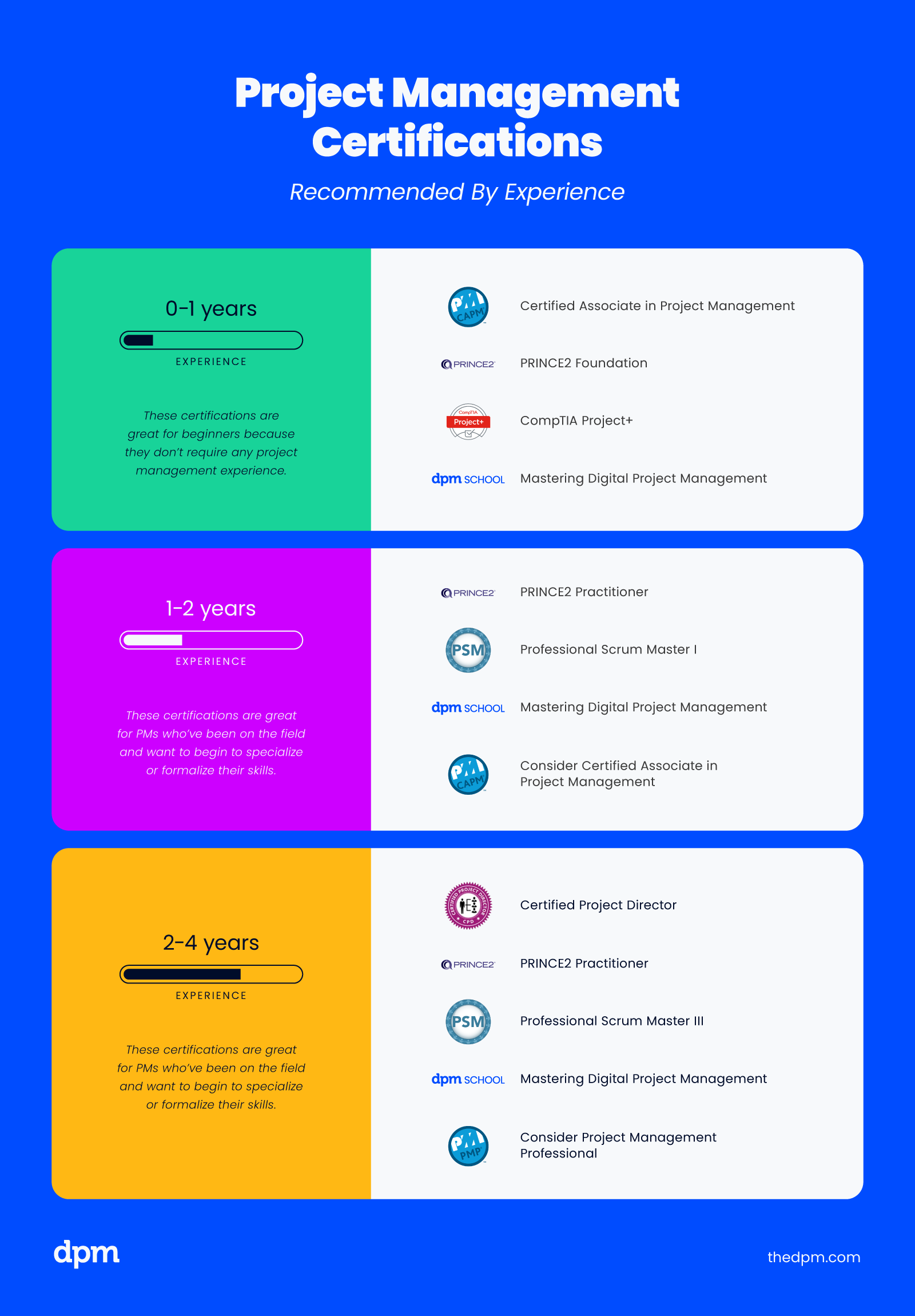
Different project management certifications have been designed for project managers at different stages of their careers. As a rough guide:
0 – 1 Years experience:
Consider Certified Associate in Project Management (CAPM), CompTIA Project+, PRINCE2 Foundation, and The DPM School.
Take a look at our guide on how to become a project manager for more tips as you start out.
1 – 2 Years experience:
Consider Certified Associate in Project Management (CAPM), PRINCE2 Practitioner, Professional Scrum Master I, and The DPM School.
2 – 4 Years experience:
Consider Project Management Professional (PMP), PRINCE2 Practitioner, Certified Project Director (CPD), Professional Scrum Master III, and The DPM School.
How Much Time You’ve Got To Invest
Many project management certifications can be attained simply by attending a 2 day or week-long course. Others, like the PMP or The DPM School, can be incredibly time intensive, but they are arguably more useful as they cover more content. Quicker alternatives if you’re short on time are PRINCE2 or CAPM.
How Much You Can Afford To Spend
Taking a cheap project management course is probably a false economy, so watch out for online project management courses that offer you a certification simply for submitting your LinkedIn profile link or resume and $300. They’re a complete waste of time and your money!
Obviously, the more junior project management certifications are often cheaper than the more expensive ones like PMP, but typically, you’ll need to spend at least $1000 on training and exams for most certifications.
It’s worth considering the certifications that don’t expire or that you don’t have to pay to renew every few years such as CompTIA Project+, Professional Scrum Master, and The DPM School.
The Type Of Roles You’re Looking To Advance Into
Finally, consider your future career—if you’re in an agency and not considering ever going client-side or working with large enterprise clients, I probably wouldn’t recommend the PMP.
Something more general like PRINCE2 Practitioner or Certified Project Director would probably be more helpful. Similarly, if you’re trying to get into more software development or product development roles, consider the agile Professional Scrum Master qualifications.
Is It Worth Getting A PMP Certification?
Again, this depends on what you're hoping to get out of it. There's lots of debates these days about whether the PMP certification is still relevant and useful (see recent opinions from Crystal Richards on the future of PMP, and Candice Wyatt on the relevance of certifications in the digital world).
For help determining whether the PMP certification is worth it for you and the specific career path you're after, go back and read the question above this one. Broadly speaking, it's worth considering the PMP if you're further into your career and looking to make a big leap from your current role to a new one.
Is the PMP Exam Hard?
Yes, the PMP exam is hard. There's no sugar coating it. You'll find plenty of anecdotes of people having to retake it upwards of 2 or 3 times. It's a multiple choice exam, but don't let that fool you.
It tests the PMBOK philosophy specifically, so you'll have to take the time to study it very thoroughly.
It also doesn't hurt to have some actual hands-on experience using the project management tools, theories, and best practices laid out in the PMBOK (broader project management experience is required), which is why I'm recommending it for those with a few years of experience under their belt.
What Is The Difference Between PMP and CAPM?
CAPM is more of an entry-level certification, while the PMP is for established project managers looking to advance in their careers. You don't need quite as many training hours or years of experience to take the CAPM exam, and the exam itself covers off the basics around terminology and processes.
The PMP is a lot more comprehensive, and as such, requires more direct experience and more training hours, and the exam itself is much harder. While CAPM can be useful for signaling to employers that you have the fundamentals down, the PMP carries more weight.
Project Management Certification Comparison
The table below provides an easy comparison of different certifications looking at duration, price, and difficulty of obtaining the certification.
| Certification | Duration (training & exam) | Cost Of Training | Exam Fee | Total Price | Difficulty (1-10) | Site |
|---|---|---|---|---|---|---|
The DPM School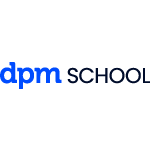 | 3 to 6 weeks | from $950 | none | $950 | 6 | Visit Website |
Project Management Professional (PMP)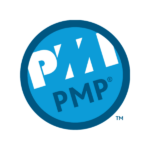 | 1 week | $1500 | ~$555 (non-members) | ~$2,000 | 10 | Visit Website |
Certified Associate in Project Management (CAPM)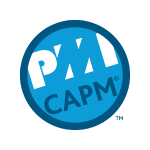 | 4 days | $200 | ~$300 (non-members) | ~$500 | 5 | Visit Website |
CompTIA Project+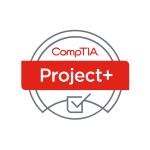 | 1 day | $200 | ~$358 | ~$560 | 3 | Visit Website |
PRINCE2 Foundation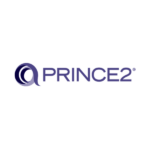 | 2 days | ~$1,000 | $363 | ~$2,000 | 3 | Visit Website |
PRINCE2 Practitioner | 3 days | ~$1000 | $488 | ~$2,000 | 7 | Visit Website |
Associate in Project Management (APM)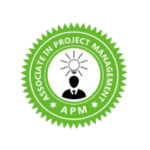 | 2 days | $70 | $128 | ~$200 | 1 | Visit Website |
Certified Project Director (CPD)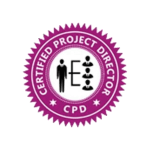 | 1 week | $100 | $210 | ~$310 | 5 | Visit Website |
Certified Scrum Master (CSM)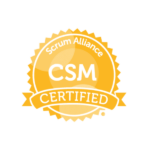 | 2 days | ~$1400 | included in training | ~$1400 | 2 | Visit Website |
Professional Scrum Master I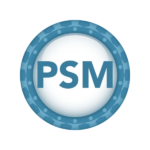 | 2 days | ~$1500 | $200 | ~$1,700 | 4 | Visit Website |
Professional Scrum Master II | 2 days | ~$1500 | $250 | ~$1,750 | 5 | Visit Website |
Professional Scrum Master III | 2 days | ~$1500 | $500 | ~$2,000 | 6 | Visit Website |
What's Next?
If you're looking for something a little less formal, DPM membership offers opportunities to connect with, learn more, and network with peers in our Slack community. Become a member and get access to the community, as well as to 100+ templates, samples, and examples for key project documentation.

